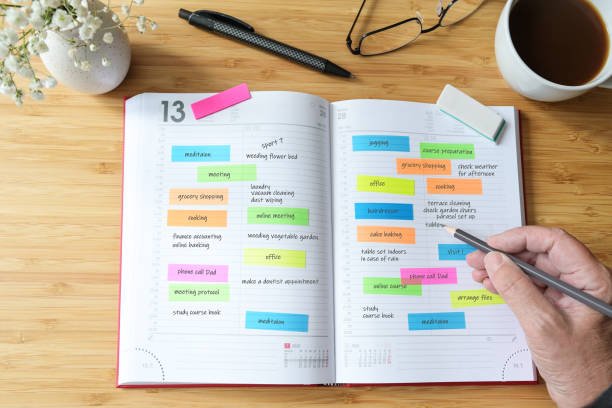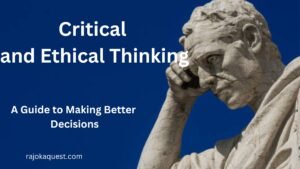Learning How to Learn: Techniques for Effective Study Habits

Developing techniques for effective study habits is compulsory for academic achievement. Contemplating can be challenging. Fortunately, anyone can foster great review propensities to make concentrating more successful, proficient, and charming.
Do you need to foster great concentration on propensities? Begin little—don’t anticipate doing everything in that frame of mind, and not necessarily immediately; pick a couple, all things being equal. Laying out practical and reachable objectives for yourself is likewise significant.
Techniques-for-effective-study-habits
1. Locate a suitable study space
Finding an excellent place to study is one of the most critical aspects of focusing effectively. Search for a tranquil spot with negligible interruptions — somewhere where you’ll have the option to center and won’t be intruded on by clear sounds or individuals who continually need your consideration.
A school or public library, a café, or a tranquil corner of your home can be great places to begin.
2. Limit interruptions
Picking a decent area to study can be the most essential phase in keeping yourself zeroed in on your work. Nevertheless, no matter where you choose to work, there are a variety of interruptions that could reach you. Here are some pointers for reducing these disruptions:
Switch off your Wi-Fi: If you’re dealing with a PC and needn’t bother with your Wi-Fi, try switching it off. This can keep you from incidentally meandering into the diverting pieces of the web.
Be aware of your telephone: it’s well-known that cell phones can immensely occupy. Switching off your notices, keeping your telephone far away in your sack, or giving it to a companion to hold you back from checking it time and again can assist you with remaining on track. You could likewise attempt a center application, similar to Backwoods or Concentration To-Do, that can obstruct diverting applications and set clocks for concentrating on meetings.
Study with a companion: In some cases, examining with a companion or two, whether you’re dealing with similar material, can help keep you responsible and centred. Ensure you agree about contemplating and keeping each other interruption-free; now is the ideal time to enjoy some time off.
3. Enjoy reprieves
Enjoying purposeful reprieves has been connected to better maintenance, expanded consideration, and lifts in energy. Research shows that working for close to 50 minutes, then, at that point, giving yourself a 15-to 20-minute break, can prompt ideal efficiency. The following are a couple of ways you can offer yourself a reprieve:
- Go for a short stroll
- Pay attention to a mindset helps tune
- Unwind with a companion.
- Stretch
- Reflect
- Daydream and dream
- Have a bite
- Wash up
- Clean your work area or room.
Not all breaks are equal. Checking your telephone or virtual entertainment as a review break has been linked to reduced execution.
4. Space out your research
Packing can assist you with getting a passing mark on a test, yet concentrates on showing that you’re significantly more prone to fail to remember that data when the test is finished. Indeed, clutching the material you learned (and making test seasons less unpleasant) requires steady and all-around separated concentration during meetings.
Rather than saving your reading up for before a test, momentarily survey material you advanced one time each week. Assuming you are reading up for a test, space out your concentration for a little while (or even months, contingent upon the test), paving the way to the test day. This can assist you with holding the data for the long haul.
5. Concentrate on objectives for every meeting
Present your focus objectives at each meeting where you are focusing. These can be time-sensitive or content-based. For instance, you could read up for two hours and audit three parts of your course book.
Try not to be too unforgiving of yourself if you haven’t overcome however much you have arranged, sometimes, considering it can take surprisingly long. Continue to enjoy divided reprieves very much, and timetable another review meeting.
6. Reward yourself
Compensating yourself with treats “paying off” yourself has been connected to better discretion and can help frame positive routines [5]. Letting yourself know you’ll get a little prize to overcome or a more significant award if you have a valuable day of contemplating can be a great inspiration to get to your objective.
Little rewards can be a treat, a hot beverage from your #1 café, a speedy round of your decision, or a short Program episode. Greater compensations for a drawn-out day of considering or finishing a test can incorporate getting your number one feast, investing some energy unwinding with companions, or setting aside a few minutes for your
7. Study with a gathering
There are a few advantages to framing a review group. Group members can help each other deal with troublesome issues, give support, consider each other responsible for concentrating on objectives, offer alternate points of view, and make concentrating more agreeable. In any event, clarifying troublesome ideas for others can assist with perception and maintenance.
If you have a gathering, concentrate on the meeting and set an objective; the gathering will progress toward that objective and enjoy intermittent reprieves as you would focus without anyone else.
8. Take practice tests
Tests and practice tests have long been seen as valuable devices for helping understudies learn and retain data. Besides uncovering holes in information and decreasing test nervousness, being tried causes us to recover data from memory—a robust and review-supported approach to retaining data we’ve learned.
Try to avoid having a training test. You can “test” yourself and gain similar advantages in multiple ways. Attempt the accompanying strategies:
- Make cheat sheets
- Compose your inquiries
- Look for training questions on the web
- Have a companion test you
9. Utilize your own words.
Communicating a thought in a way that would sound natural to you builds how you might interpret a subject and assists your mind with clinging to data. After you read a part of the text, sum up significant focuses by rewording.
10. Request help.
You could wind up stuck on an issue or need more time to figure out the clarification in a course reading. Someone who can help you with the problem could give you the new clarification you want. Move toward your educator or teacher, showing the right hand, companion, or study bunch part for better approaches to comprehend what you’re stuck on. Can you profit from being instructed on a subject? Think about searching for a guide.
Furthermore, remember the online apparatuses that may be available to you, such as the Khan Foundation. A speedy search through Google or YouTube can surface supportive articles or recordings on subjects you’re attempting to understand.
11. Deal with yourself
By the end of the day, your mind is an organ in your body—deal with it yourself. Get regular exercise, eat well, don’t overdrink, rest well, and deal with your psychological prosperity.
Rest: Reviews have connected lack of sleep to diminished mental capability, including decreased focus capacity and doing more regrettably on tests. Everyone’s rest needs are unique, yet individuals typically need somewhere in the range of seven and eight-and-a-half long periods of rest an evening. Besides, getting more rest can make you more joyful and benefit your public activity.
Food: Attempt to incorporate more organic products, vegetables, plant sources of proteins, nuts, and unsaturated oils like olive oil into your eating regimen. These have all been linked to better mental execution.
12. Work out
Exercise carries oxygen to the piece of your cerebrum, which is liable for thought, supports the improvement of new nerve cells, and lifts synapse associations. This makes cerebrums more neuroplastic and proficient. In addition, it brings a large group of other medical advantages, like bringing down circulatory strain, decreasing mental pressure, and promoting weight control.
13. Mental well-being:
Emotional well-being is significant because it assists us with managing pressure, works on our associations with others, permits us to live more genuinely, and is more useful in our work. Working out, eating great, and resting can lift our emotional wellness. However, there are alternate approaches to sustaining mental strength, for example, associating with others, rehearsing appreciation, pondering, and fostering a feeling of importance throughout everyday life.
Conclusion
Attempt to adhere to an ordinary daily schedule. What’s more, get sufficient rest — in addition to the night before the test, for weeks or months. “Those things are super significant for learning,” Nebel says. Practice helps also, she says. She adds that try not to worry if all of this appears to be a ton. If a great deal seems new, add only one new review expertise every little while.
Or space out your review meetings and practice recovery for the initial few months. As you get more practice, you can add more abilities. Furthermore, if you want assistance, inquire. At last, on the off chance that you battle to heed the guidance better (as you can’t monitor time or find it extremely difficult to sit and zero in on your work), you might have an undiscovered condition, like ADHD. To find out, check with your PCP. The uplifting news: It may be treatable.






Good Rajoka 👍👍👍
Really appreciated ❣️
Hi there
Just checked your rajokaquest.com baclink profile, I noticed a moderate percentage of toxic links pointing to your website
We will investigate each link for its toxicity and perform a professional clean up for you free of charge.
Start recovering your ranks today:
https://www.hilkom-digital.de/professional-linksprofile-clean-up-service/
Regards
Mike Simon
Hilkom Digital SEO Experts
https://www.hilkom-digital.de/